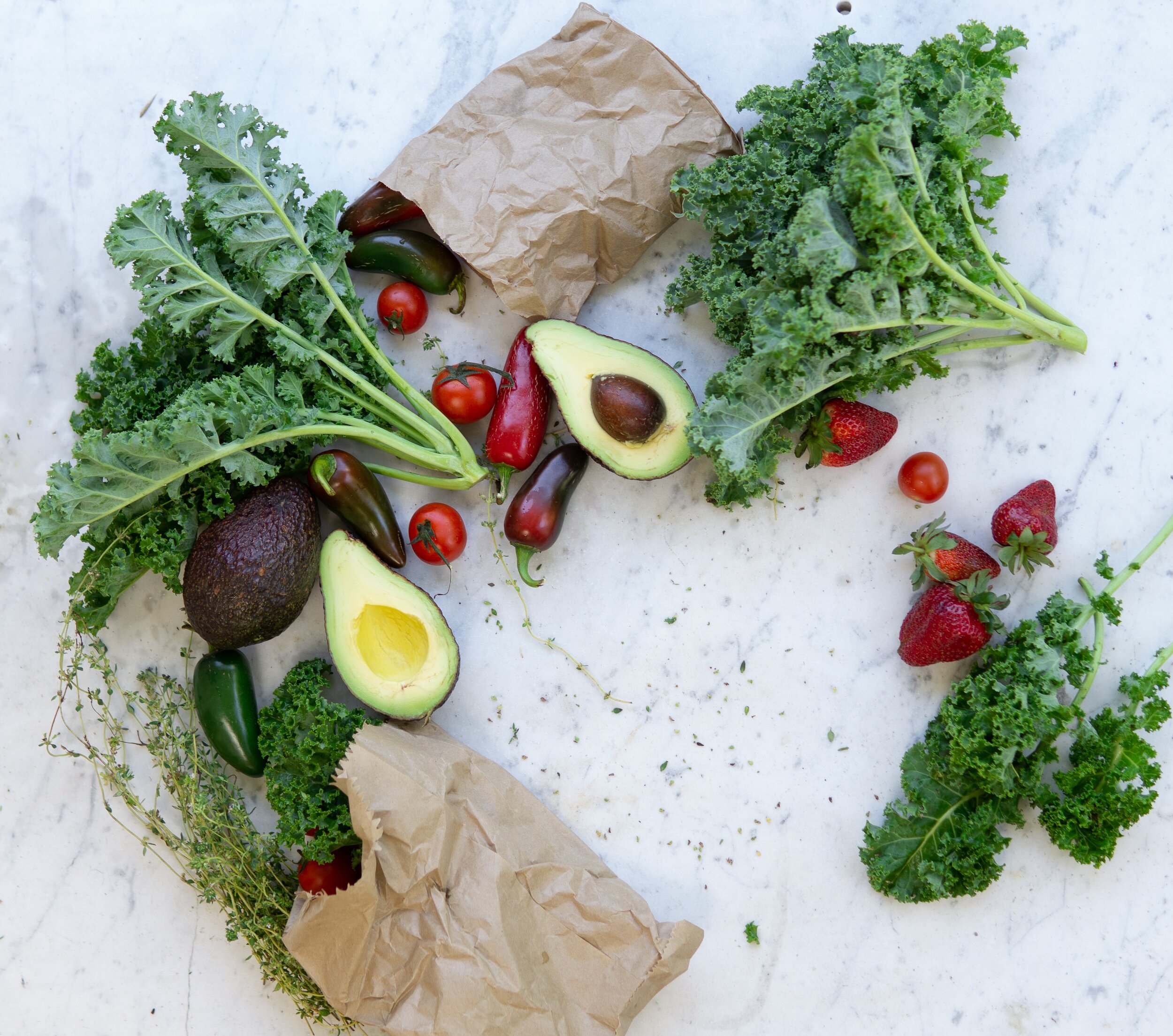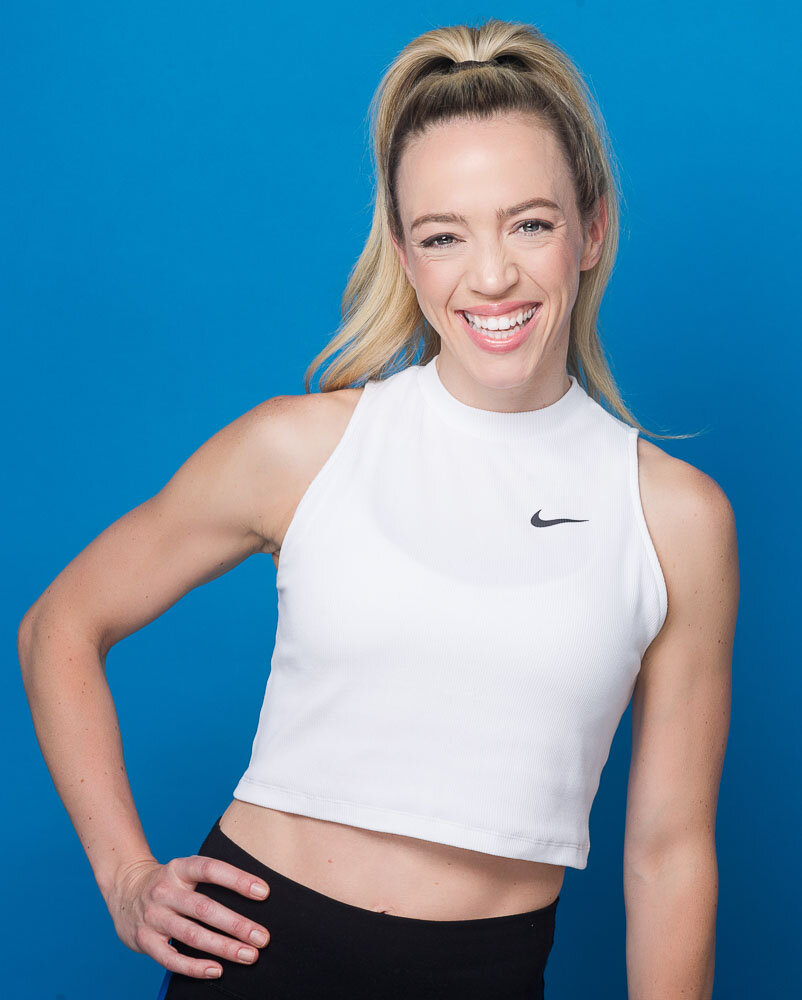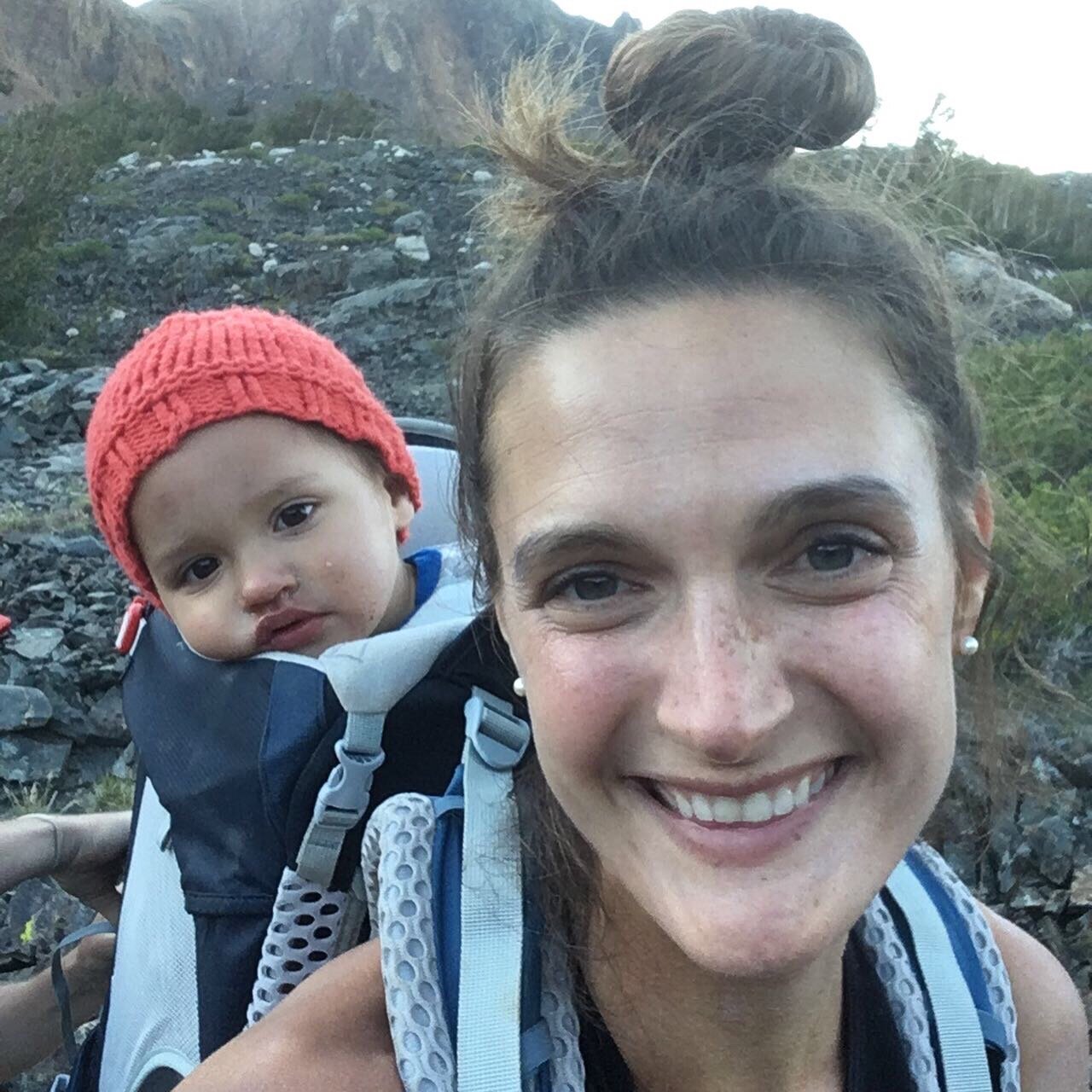#AskTheExperts – Nutrition
Nutrition is a topic that I love, and there are SO many opinions and voices out there telling you how to eat, and what you should eat. Your diet is also incredibly personal and specific to you! But as we navigate the world of nutrition we start to notice there are [sometimes conflicting] trends – Fat was bad, but now its good? Is almond milk ok or no? What about caffeine? I’ve gathered up the most popular diet + nutrition questions from YOU, and then turned to my trusted friends/nutrition experts to get you some quality answers! Below you’ll hear from Jamie Schehr, a naturopathic doctor and a registered dietitian who specializes in integrative health+wellness; Carolyn Brown, MS RD who is the founder of Indigo Nutrition and has been in private practice working with individuals for over 9 years; and Jenn Lovewell, RD Nutritionist who has a focus on sustainable and equitable food systems that encourage both the planet and its people to thrive. I give my take on these questions below as well from my Wellness/Fitness professional perspective.
Be sure to check out the experts’ full bios below! Like most advice, this information is general and any changes around nutrition and diet should be tailored to your needs. What’s below can supplement your knowledge of nutrition and potentially provide greater insight into your body and your needs.
Ask the Experts: Nutrition
How do you feel about pre and post-workout fuel?
[Emma]: Personally, I don’t like to eat before I exercise. I feel better when I don’t have a super full stomach. And since usually my workouts are 30-60 minutes, I can wait till afterwards to eat. If I’m really hungry before a workout, I’ll eat something small like a banana, or some peanut butter. After the workout is when I eat the most. Within the hour after exercise I’ll refuel by drinking plenty of water, (sometimes with electrolytes) and then a meal with carbs (sweet potato, quinoa, rice), fats (nuts, avocado) and some kind of protein (fish, tofu, beans). To see what I eat in a day click here.
[Jaime]: Optimal fuel type largely depends on the athlete as well as the type of workout. Post-workout protein becomes more important in people working out fasted or trying to hit a specific amount of protein. Anyone who needs to eat before a workout will do better if the foods are not high fat or high fiber. It’s also very important to remember that portion is an important factor. For example, overeating before a workout can negatively impact your performance. Endurance exercise may require more carb replenishment compared to strength, which may require more protein.
What’s up with intermittent fasting?
[Emma]: I’m so glad we’re talking about this, because this is one of the most common questions I get asked. I understand fasting while sleeping, for example, stop eating at 8pm, and then don’t eat again until 10am. Which is often what I end up doing anyway, unintentionally.
[Jaime]: Intermittent fasting (IF) is the practice of avoiding food for a specific amount of time to induce a state of fasting. This fasted window range depends on the individual but generally includes a 16-hour window without food. It is true that you may lose more fat working out fasted, however you may also lose more muscle. If the body’s glycogen stores are depleted, the body can breakdown protein for fuel, the opposite of what most people are looking for. Therefore, if you are looking at IF for exercise, it is important to plan training and timing strategically.
[Carolyn]: I’m a fan of IF because it really honors our body’s natural circadian rhythm. There are both short and long term health benefits, from energy, focus, and mood boosting and weight loss to decreased disease risk. Historically (like, pre-electricity a hundred years ago), we wouldn’t have been eating dinner after it was super dark. The more important part of IF is eating dinner earlier, NOT pushing breakfast back too late or having only one meal a day. I suggest trying to finish dinner at least 2-4 hours before bed. Biologically, sleep is when our whole body presses reset, our brains have a cleaning system called the glymphatic system that is activated: if you’re digesting while sleeping, it takes energy away from all the good stuff that happens overnight.
And fasted cardio?
[Jaime]: Contrary to popular belief, it is not true that you burn more calories fasted or not. However, the body will rely on an alternative source of fuel if you do not have the energy available to burn. If someone is practicing this, they must hydrate properly as to avoid negative effects of dehydration. I often recommend replenishing protein levels immediately following a fasted cardio workout.
Should we drink caffeine in the morning for added energy?
[Emma]: I love the ritual of a morning caffeinated beverage. I alternate between matcha/green tea in the morning, or sometimes an oat milk latte. I can’t have caffeine after 12 noon, because I’ll have a hard time falling asleep, so I make sure to caffeinate early.
[Jenn]: In the last few years, we’ve learned that the diuretic effects of caffeine have been grossly exaggerated. In fact, a cup of coffee or tea can actually contribute to your hydration as they are mostly water. Caffeine is a stimulant, which improves blood flow throughout the body, including the brain, which could be part of the correlation. The best sources of caffeine will come from natural sources – like coffee beans and tea leaves. Avoid soft drinks and energy drinks as their caffeine (and almost every other ingredient) are artificially produced. Some people really enjoy mushroom coffee – which still contains coffee and caffeine, but also gives you the benefits of consuming fungi (of which there are MANY!). Adding a full fat dairy product or making coffee/tea “bullet proof” style can also help slow absorption and reduce the jittery and anxious effects of caffeine.
[Carolyn]: I love caffeine via coffee and green tea, black tea, or matcha. However, caffeine doesn’t agree with everyone (it has to do with our liver detoxification pathways) so listen to your body on this! While research shows that caffeine can improve athletic performance, my rules are to go organic whenever possible and stop caffeinating after 2pm.
In terms of improving diet, what are antioxidants actually and to what extent do they help?
[Emma]: When I think of foods high in antioxidants I think of berries, like blueberries, raspberries, strawberries, also greens like spinach and kale, as well as beans. Also, dark chocolate! These are definitely staples in MY diet.
[Jenn]: Antioxidants are critical compounds to minimizing inflammation, chronic disease, and promoting long-lasting health. Antioxidants help combat free radicals in the body. Free radicals occur naturally and can serve important functions essential to health but can also do harm when found in excessive amounts or when the balance of free radicals outweighs the amount of antioxidants, which can lead to oxidative stress. Prolonged or excessive oxidative stress can lead to chronic diseases like heart disease and cancer and can exacerbate the aging process. Several lifestyle, stress, and environmental factors are known to promote free radical formation and oxidative stress, including smoking, drinking alcohol, being exposed to radiation, and excessively taking metals. My best advice regarding antioxidants to minimize lifestyle factors that can lead to free radical production and focus on a clean food diet full of fruits, vegetables, nuts and legumes, whole grains, healthy fats, high-quality and sustainable fish… whole foods!
[Jaime]: Antioxidants are compounds that help reduce breakdown of certain cells in our bodies. The process of oxidation is a reaction that causes damage to cells, and antioxidants have the ability to stop that reaction. These foods have gained tremendous popularity in the anti-aging, heart health, and performance world due to their strong healing effect. I highly recommend that individuals eat a diet high in antioxidants, including vegetables, fruits, and seeds. Supplementing antioxidants should be based on an individual need.
How bad is refined sugar?
[Emma]: I originally started my blog Live Learn Lovewell when I decided to go sugar free for a month back in 2015. I quickly learned how much sugar there is in almost EVERYTHING. Once I took away refined sugars, and limited all sugar in general, I noticed a difference. I had less stomach aches, headaches, wasn’t crashing in the middle of the day. Also my taste buds totally changed, and an apple suddenly became almost TOO sweet. I eased back into eating sugar, although now I’m hyper conscious of limiting my sugar intake, and have more awareness for foods with hidden sugars in them. (Like BBQ sauce, marinara sauce, most salad dressings, etc).
[Jaime]: Excess sugar is highly inflammatory. It has been linked to many diseases, including diabetes, obesity, depression, migraines, fatigues, and liver disorders. Because sugar is cheap, tastes good, and easy to produce, it has been a staple in most processed foods in the US leading to a public health crisis. That being said, sugar in processed forms should be distinguished from natural sugar like those found in produce. I highly recommend my clients limit their intake of processed sugars: if a label has more than 10 grams of sugar per serving, avoid that food.
And alcohol?
[Emma]: Personally, I drink in moderation. And my relationship with alcohol has absolutely changed as I’ve gotten older. I’m far more sensitive to alcohol now, the amount and the type. Currently I really only drink maybe 1 drink a week, or every other week. And I’ll have either wine or tequila. I definitely stay away from sweet cocktails, and enjoy a good tequila soda lime!
[Jaime]: This is a highly individualized decision however I recommend that anyone who drinks alcohol does so in moderation (less than 7 drinks per week) and chooses healthier options for alcohol. Specifically, avoid alcoholic beverages that are mixed with high sugar drinks such as juice, soda and cream. Furthermore, make sure if you drink alcohol you are hydrated both before and after you drink.
In relation to diet in general, how does it affect skin health?
[Emma]: I’ve been told that gut health plays a role in having healthy skin. If your microbiome is unbalanced, it can be reflected in poor health and skin. Ways to supplement gut health include consuming fermented foods like, kimchi (love it so much, I named my cat after it), sauerkraut, and kombucha (link to my recipe here!)
[Jenn]: Our skin is our largest organ, so whatever we put in our bodies can have a large effect on its health. A clean diet is minimizes the amount of processed food and focuses on foods that nature created – fruits, vegetables, nuts, legumes, high-quality and sustainable animal proteins, and whole grains. Processed foods are typically identifiable by a lot of packaging and long ingredient list with words you can’t pronounce. Foods in a cleaner diet also will have a higher amount of vitamins, nutrients, and minerals in their natural forms, the state that our bodies have evolved to digest and absorb them best. Trust nature over marketing slogans and fancy claims!
[Carolyn]: First and foremost, water water water. Hydration is key to great skin. From there, I love teas like hibiscus and rooibos, both have skin glowing benefits. I make a French press of one and sip it through the day. Other great foods for skin: healthy fats like avocado, olive oil, nuts and seeds and coconut oil. The more veggies the better. While I prefer to focus on healthy additions, cutting back on sugar, white carbs, and dairy can help with skin flare ups too.
I hope this article has been informative for you guys who are curious about different nutrition trends. While there are so many trends that advertise weight loss, improved mood, and the like, I firmly believe that incorporating lots of vegetables into your diet and listening to your body are the most critical factors for achieving a sustainable, healthy lifestyle.
Meet the Experts!
Dr. Jaime Schehr (@jaimeschehr, www.jaimeschehr.com) is a naturopathic doctor and a registered dietitian specializes in integrative health+wellness. She works with individuals and athletes of various levels to better understand their health concerns and optimize their diet and lifestyle. She is a frequent lecturer at fitness events, training camps and immersive seminars as well as runs a private practice in NYC. In addition to her work with individuals and companies, Dr. Jaime has developed a number of educational platforms and curriculums for students to learn and become licensed in the field of nutrition. Working with Dr. Jaime Schehr If you are interested in working with Dr. Jaime Schehr she can be contacted through her website www.jaimeschehr.com to schedule a free 10min consultation.
Carolyn Brown, MS RD (@carolynbrownie) is the founder of Indigo Nutrition and has been in private practice for over 9 years. Carolyn sees food as a way to optimize every aspect of your life, from your weight to your hormones to your mental health, and helps clients from 15 to 85 fall back in love with food and feel great in their bodies.
Carolyn sees clients privately and has launched in Indigo Nutrition Club to help you master one thing at a time. She has also launched The Fruitful Program in January 2020 to help optimize your health, balance your hormones, and support future fertility. Reach out [email protected].
Jenn Gerard Lovewell is a Registered Dietitian Nutritionist with a focus on sustainable and equitable food systems that encourage both the planet and its people to thrive. She currently loves helping run and operate Real Good Fish, a sustainable seafood company started by her husband, Alan Lovewell. Previously she was the Director of Nutrition of the Monterey Peninsula Unified School District, one of eight Fresh Meals @ School Ambassadors for the state of California, and an “Innovation Award” winner from the Center for Ecoliteracy. She and Alan co- founded the Bay2Tray program which connects school districts with locally, sustainably sourced seafood, and was recognized by the Obama Administration’s “Champions for Change in Sustainable Seafood” program. She lives in Santa Cruz, California, and most importantly, she’s Luca’s mom.









Comments (0)